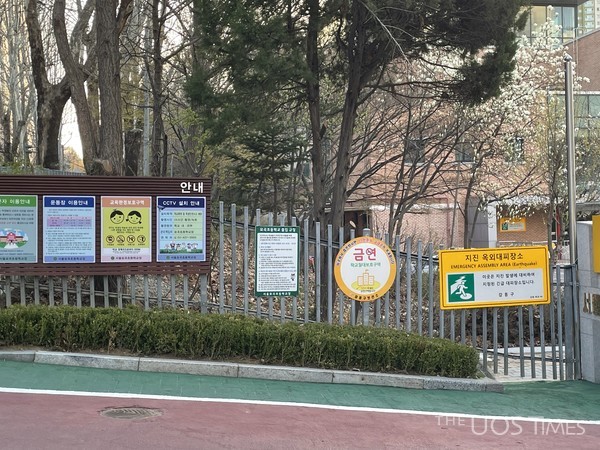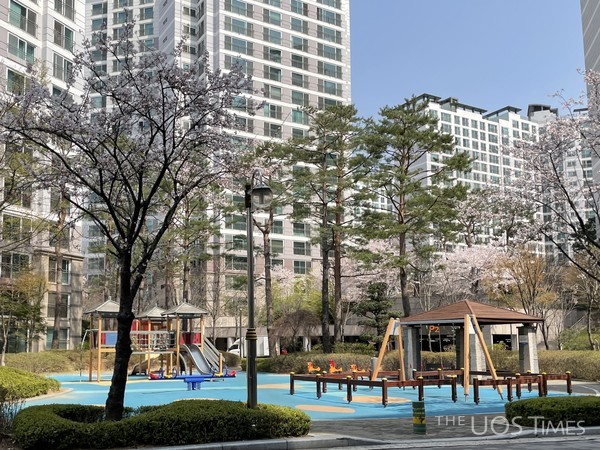
The Netflix original series “Juvenile Justice,” released on February 25, 2022, has made a splash in South Korea, topping the charts. According to Flixpatrol, a leading data analytics company, the show reached 10th place on the global top TV shows on Netflix after only two days. “Juvenile Justice” is a fictional TV series about the judge of a juvenile court who loathes juvenile criminals. Most of the criminal cases from the show are based on true stories, demonstrating the seriousness of juvenile crimes of today. As a result, many people have begun to pay attention to the Korean Juvenile Act, which has long been at the center of controversy.
The Korean Juvenile Act
The Juvenile Act was enacted in South Korea in 1958 in order to ensure a sound foster system for juvenile offenders by improving their social environment and ensuring opportunities for the reform of juvenile delinquents. In other words, it is a law for the underaged who are immature but with a bright future, who are expected to be easier to reform than adults. Therefore, the Juvenile Act focuses more on reforming juvenile criminals than punishing them.
According to the Juvenile Act, teenagers under 14 years of age who committed a crime or misdemeanor must be dealt with by the Juvenile Department. Their cases are tried as protection cases, which means that by reason of their youth, they go unpunished for what they have done. Under protective disposition, they could either be sent to certain institutions or placed in the care of a legal guardian. On the other hand, teenage criminals aged 14 to 18 years may be punished under criminal law. These juvenile offenders could be sentenced to up to 20 years of prison and additional protective disposition. Meanwhile, the law does not allow any kind of legal penalty to be imposed on children under 10 years of age.
The Juvenile Act in Other Countries
Other countries have laws similar to the Juvenile Act, but the age of juveniles exempted from punishment varies. According to the Legislation and Judiciary Committee of Korea, the Juvenile Act of France classifies perpetrators of criminal acts under 13 years of age as criminal minors, while in the United Kingdom, such children under 10 years of age are considered criminal minors. Moreover, in the United States, most states exempt children under seven years of age from punishment. All the people over such age limits may be punished, unlike criminal minors, who only can be sentenced to protective disposition.
Japan, Korea’s neighboring country, has lowered the age of a criminal minor since 1997. As in Korea, teenagers under 14 years of age in Japan are not criminally liable for their crime, but, if their crime is judged to be serious, even an 11-year-old criminal could nonetheless be sent to a youth detention center. Japan has reinforced the related laws and punishments, but its measures seem to be ineffective in stopping increases in the juvenile crime rate.

Endless Argument: Pros and Cons of the Juvenile Act
There has been endless debate over the Juvenile Act. Should a juvenile’s crimes be punished more strongly? Or should we give the juvenile another chance? The UOS Times interviewed UOS students Kim A-jin (Dept. of Environmental Engineering, ’22), who is in favor of strengthening the Juvenile Act, and Song Ki-myung (Dept. of Environmental Engineering, ’22), who opposes strengthening it. First we present the interview with Kim, who favors strengthening the Juvenile Act.
Q1. Why do you think the Juvenile Act should be strengthened?
A1. With the punishment being so light, there is a high possibility that children will deliberately abuse the Juvenile Act. Moreover, light punishment prevents children from realizing the seriousness of their delinquency, and therefore it can cause children to repeat the crime.
Q2. If the Juvenile Act must be strengthened, what do you think is the right way to strengthen it?
A2. I think we need to lower the age of criminal minors and increase the sentences for repeat offenders. No matter how young a child is, they must know that it is wrong to commit crimes. Of course, reform is important, but I think we need to inform them of the seriousness of the crime by increasing the level of punishment.
Nevertheless, many, such as Song, argue against strengthening the Juvenile Act.
Q1. Why do you oppose strengthening the Juvenile Act?
A1. The purpose of the Juvenile Act is not punishment but reformation. Teenagers can make more mistakes than adults because they are immature, and the Juvenile Act was enacted to lead children to the right path. Also, we are already aware of the differences between teenagers and adults. For example, through regulations such as those on underage drinking and limits on voting rights, teenagers and adults are still considered separately in the Korean legal system. It is a paradox that a juvenile is considered separately in all other parts of society, but that such standards are not applied only in criminal law.
Q2. Juvenile crime is getting worse day by day. How can we prevent the increasing number of juvenile crimes besides strengthening the law?
A2. One of the main factors of teenagers committing crimes is the environment, such as families and peer groups. Therefore, improving the surrounding environment rather than imposing punishment is fundamentally a better way to cut crime. Creating a desirable social environment for juveniles to grow more properly should be the priority.
Thus, arguments over the pros and cons of the Juvenile Act have been fierce. On December 10, 2021, five teenagers broke into a self-check motel in Gyeongsangbuk-do (a province in eastern South Korea, in English) to commit vandalism, and when the motel owner tried to stop them, they said, “We are criminal minors, so kill us if you want.” As there have been numerous similar cases recently, domestic public opinion is leaning toward strengthening the punishments under the Juvenile Act. However, as the case of Japan mentioned above shows, experts say that there is no correlation between the intensity of punishment and the rate of recidivism. Japan and the United States have followed popular demand in strengthening the punishments under their Juvenile Acts, but the increased severity did not result in decreased crime. How should we treat juveniles who abuse the Juvenile Act? Now is the time to seriously consider and discuss what methods will be most helpful to both Korean society and children.
The Current Circumstances of The Juvenile Act in Korea
According to the Youth Data Archive, the proportion of “violent crimes” among adolescents has steadily increased from a figure of 2.23 percent in 2008 to 5.31 percent in 2020. Public opinion has continued to demand that juvenile offenders be treated more severely. There have been many voices on the National Petition Bulletin calling for the Juvenile Act to be strengthened. Nevertheless, the government has continued to take few actions to strengthen the Juvenile Act because stronger punishments are not guaranteed to prevent crime, and the Juvenile Act was intended from the beginning for the reformation of adolescents.
In the middle of this controversy, Yoon Seok-yeol, the president elect, has drawn attention to the Juvenile Act by asserting his pledge to lower the age of criminal minors from 14 to 12. The Ministry of Justice has also announced active support for the implementation of the pledge. Public opinion in Korea is solidifying in favor of strengthening the Juvenile Act.
Now it is clear that the issue of juvenile crime and the Juvenile Act, which has been regarded as a chronic problem in our society, is inevitable in Korean society. Koreans must face it head on.

